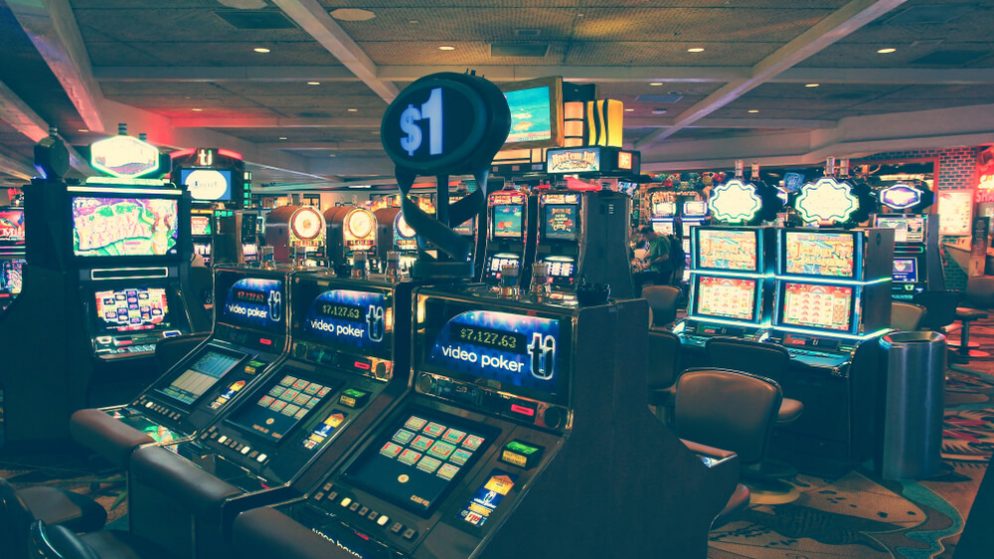

Last month’s report from the Illinois Commission on Government Forecasting and Accountability proved that video gambling in the state continues to grow. In 2013, video gaming machines made just $121 million, compared to 2021’s massive $1.9 billion.
In 2013, the state of Illinois also collected $36 million in video gambling tax revenue, compared to $657 million in 2021.
What we cover
Sangamon County is the Big Winner
Sangamon County in Central Illinois collected $24.9 million in video gaming tax revenue in 2021. Out of that, only $3.7 million went to Sangamon County, while $21.2 million went to state coffers.
State Representative Tim Butler, a resident of Springfield and Sangamon County, says that video gaming is not just a source of revenue for local and state government, but also a boon to small businesses that make extra revenue from their gaming terminals.
But, video gaming terminals have spread beyond small businesses in Springfield, with numerous gambling parlors throughout the city. In fact, Springfield is the state leader, with 736 video gambling terminals.
Springfield Mayor Jim Langfelder wants to place a cap on the number of gambling licenses within his city, but that push was not successful. Now, the mayor wants stricter city ordinances concerning who can apply for a gambling license, to help reduce the number of businesses with video gambling machines.
Likewise, Ward 7 Alderman Joe McMenamin wants a cap on the number of gambling parlors allowed in Springfield.
Smaller Illinois Cities Benefit from Video Gambling
According to the Illinois Commission on Government Forecasting and Accountability report, the following cities outside of Cook County raked in the most video gambling tax revenue in 2021:
- Number 1: Decatur with a total of $11.6 million collected, $1.9 million for local governments, and $9.7 million for the state.
- Number 3: Springfield with a total of $11.1 million collected, with $1.9 million for local governments and $9.3 million to the state.
- Number 7: Champaign with a total of $6.1 million collected, $1 million for local government, and $5 million to the state.
There are a total of 40,157 video gambling terminals in Illinois and Cook County has 7,576 of those, even though the City of Chicago doesn’t allow video gambling. By comparison, Sangamon County has 1,543 video gambling terminals.
Todd Maisch, President, and CEO of the Illinois Chamber of Commerce think that the explosion in local video gambling is because there are no casinos nearby casinos. He also feels that the market is close to saturation.
Local Governments Want a Bigger Cut
As you can see, the State of Illinois receives the lion’s share of tax revenue, leaving only a small percentage to county and municipal governments.
The state tax on video gambling revenue is 34%, but only 5% of that goes to local municipalities. The bulk of that tax revenue goes into the Rebuild Illinois fund for capital projects.
To that end, some municipalities, such as Decatur, are approving a one-cent amusement push tax on every wager placed on a video gaming terminal. Scot Wrighton, Decatur’s city manager, estimates that conservatively, the amusement push tax could give the city an additional $700,000 annually. Mayor Moore Wolfe has proposed using those tax funds to revitalize Decatur’s neighborhoods and demolish the dilapidated buildings littering the city.
As you might expect, terminal operators and players oppose such a tax. While lawsuits have not been filed yet against the City of Decatur, The Illinois Gaming Machine Operators Association has filed lawsuits against the amusement push taxes levied by Oak Lawn and Waukegan.
State Representative Tim Butler Has Concerns
While tax revenue and economic growth are good things, Butler also acknowledged the negative aspects of video gambling.
He points out that gambling is addictive for many people, and stresses the need for better resources to combat gambling addiction. To that end, he’s in favor of reviewing gambling laws periodically to assess the need for licensing caps in some communities.
In 2019, it was found that Illinois led the country in gambling-related arrests. Also, the state ranked as the ninth most gambling-addicted state in the country. However, the good news is, that this year, Illinois dropped to number 17, behind Colorado. That might be due to more states, such as Colorado, have legalized more forms of gambling over the last two years.
That drop might also be due to the increased funding for problem gambling services. According to the 2020 Illinois Department of Human Services budget, more than $4.9 million was allocated for gambling addiction treatment and services, up from $800,000. The department also launched a massive campaign to let problem gamblers know that help was available.

